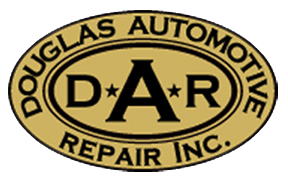Changing the many fluids in a vehicle is always a change for the better. Dirty engine oil, transmission fluid or anti-freeze are bad news for a car. But what about brake fluid? Many motorists know that this fluid should be topped off, but changed?
Brake fluid in the typical vehicle can become contaminated in two years or less. This is because the fluid absorbs moisture, which works its way through the hydraulic system. Under heavy braking conditions, such as those encountered in mountainous or hilly driving or when towing a trailer, moisture in the overheated fluid vaporizes (boiling point of water is lower than that of brake fluid) and braking efficiency is reduced.
Even under normal driving conditions this condition can develop if the brake fluid is seriously contaminated. Not only is the fluid vulnerable to vaporizing, it also can freeze.
Brake fluid must maintain a stable viscosity throughout its operating temperature range. If it’s too thick or too thin, braking action is impaired. Beyond the vaporization hazard, moisture creates an additional problem for owners of vehicles equipped with anti-lock braking (ABS) systems. Rusted and corroded ABS components are very expensive to replace.
How does a car owner know when to have fluid changed? The Car Care Council recommends replacement every two years or 24,000 miles. Or as recommended in your vehicle’s owner’s manual.
Douglas Automotive Repair Inc can check your brake fluid to see if it needs to be changed. Give us a call today!
This entry was posted in Brakes, Preventive Maintenance, Safety, Vehicle Maintenance and tagged Brakes, Preventive Maintenance, Vehicle Maintenance on .

